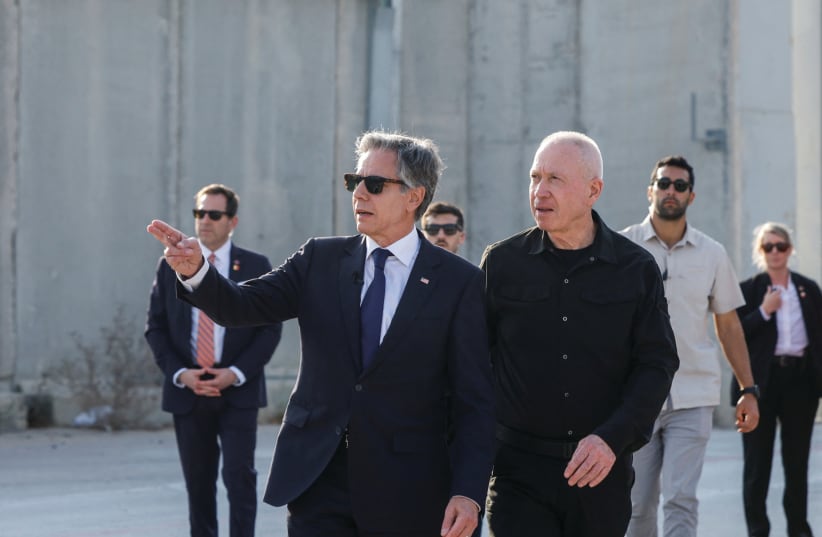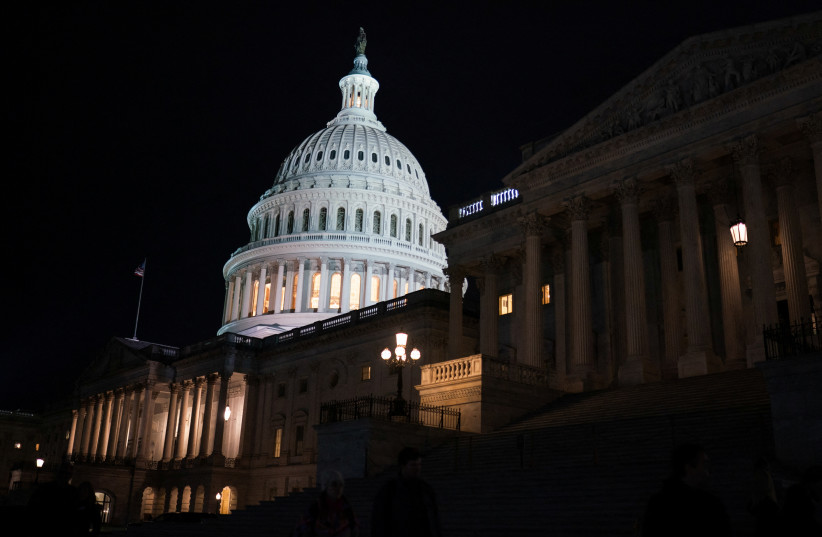Amid the conflict in Gaza, the United States administration’s decision to delay a crucial shipment of munitions to Israel is not just a logistical delay; it is a major erosion of trust between staunch allies.
On a seemingly ordinary Monday, Secretary of Defense Lloyd Austin made a startling revelation: the US would withhold one shipment of essential munitions from Israel due to concerns about possible civilian casualties in the strategic Rafah region. This announcement added a layer of complexity and doubt at a time when decisive action is most needed. Austin’s move strikes at the heart of the operational readiness of the IDF and sends a worrying signal about the US’s resolve to stand by its ally.
The timing and reasoning behind this pause are particularly troubling. It came during a critical phase of Israel’s operations against Hamas, a terrorist organization that poses a relentless threat to the security of Israeli civilians. Allies depend on consistent and reliable support in times of crisis; however, this decision by the US suggests a wavering commitment, raising questions about its reliability as a strategic partner.
Israel-US tensions help Hamas
Criticism from The Wall Street Journal underscores the strategic missteps. Its editorial earlier this week pointed out that such hesitations directly benefit Hamas, allowing it a respite when Israeli forces are applying pressure. This not only potentially prolongs the conflict but risks increasing the civilian casualties the US wants to prevent. It’s a paradox that undermines the intended ethical stance of the US and illustrates a misunderstanding of the dynamics in fighting entrenched terrorist elements.
Moreover, the decision represents more than a temporary tactical shift; it signals a possible change in US foreign policy that could have long-lasting geopolitical repercussions. The US has historically been Israel’s staunchest ally, providing not just military aid but also standing by its right to defend itself on international platforms. This pause in military aid is at the very least, a moment of hesitation that adversaries could exploit.
The internal US political climate further complicates this scenario. Recent debates in the US Congress and among the public reflect a polarized view on the extent of support the US should offer Israel. This division is not just a domestic issue; it affects international perceptions and can alter strategic calculations for other global actors who closely watch US commitments and policy shifts.
Israel’s need to maintain pressure on Hamas cannot be overstated. Rafah is not just another battleground; it is a critical node in the network of tunnels and supply lines that Hamas uses to fortify its positions and launch attacks against Israel. The strategic need to control or neutralize this area is vital in preventing further escalations, and in striving toward a scenario where civilian lives on both sides can be safeguarded.
This US’s decision can affect the region’s delicate balance of power. It emboldens Israel’s adversaries, who may perceive the pause as a weakening of Israeli resolve because of less certain US support. It also complicates the broader Middle East’s geopolitical puzzle, where regional actors soon capitalize on shifts in traditional alliances.
In response to these challenges, the US must reassess its approach and consider the broader implications of its foreign policy moves. Allies do not merely support each other during convenient times; they stand by each other resolutely, particularly during periods of existential threats. The principle of mutual support is foundational to any alliance, and any deviation from this can have disproportionate impacts on the ground.
Moving forward, the US administration must clarify its position and align its strategic objectives with the realities of the conflict in Gaza. Resuming the shipment of munitions would be a step towards reaffirming its commitment to Israel’s security needs. It would also signal to other international actors that US alliances are not subject to abrupt changes based on shifting political trends.
As Israel continues to face significant security challenges, the unequivocal support of its principal ally is indispensable. The US must provide not just military aid, it must also send a clear and consistent message of solidarity. This is crucial not only for the stability of the region but for the integrity of international relations where commitments must be honored and alliances respected. The strength of a promise, much like the strength of a nation, is its consistency over time. Allies must not and cannot afford to leave each other adrift, especially when the stakes are as high as national survival.

